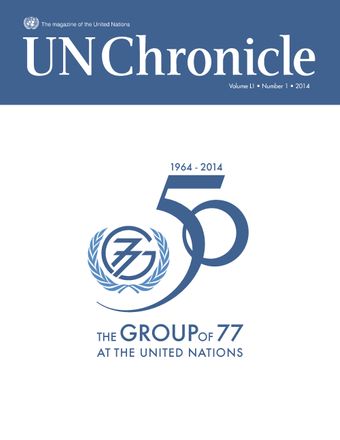-
A Southern renaissance?
- Source: UN Chronicle, Volume 51, Issue 1, Jul 2014, p. 34 - 35
- French
-
- 21 Jul 2014
Abstract
The United Nations Development Programme (UNDP) Human Development Report 2013 bore the enthusiastic title, The Rise of the South: Human Progress in a Diverse World. The Programme felt that the Global South had finally arrived in economic terms, and that in time it would make political inroads against a system that has been suborned to the needs of the Global North. It is certainly the case that China’s economy has a high growth rate and that various international agencies, such as the International Monetary Fund (IMF) predict that within a decade or two it will have the world’s largest economy. What is often forgotten in these predictions is that while China might have the largest economy in terms of its GDP, its population size means that it will not have the highest per capita GDP. That honour will continue to belong elsewhere. This is the reason China continues to insist that it is a developing country, despite having the second largest GDP among the world’s states. There is no question that China and India have emerged as major economic powerhouses, but their own internal vulnerabilities are considerable, including poverty, unemployment and most dramatically, starvation rates. The South might be rising, but the questions that need to be raised are what kind of rise are we seeing, and what kind of political impact will this have?
© United Nations



